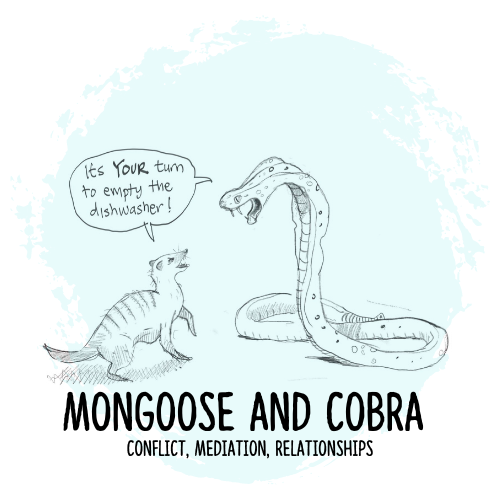Conflict - In an arguably defensive and insecure way - is often described as positive, necessary for creativity, motivating and fundamentally essential to growth. And yet, we do everything in our power to shield ourselves and others from it. Furthermore, industries of professionals have been crafted and created to protect us from conflict. Lawyers, judges, arbitrators and more suited and high-heeled individuals grab the difficult part of conflict and take it from us, remove it from our hands and attempt, in what for many is a form of protection, to distance us entirely from it. If not the consequences, certainly the process. Well-meaning in many cases but not without an implicit suggestion that conflict, whilst positive, is too much for the lay-person to handle.
If we felt like getting hyperbolic, and we all do at some point, surely? We could join the late Nils Christie, the Norwegian criminologist and claim that this amounts to conflicts being “stolen” away from the rightful owner by the professionalisation of the resolution. The professional's training and, as he puts it, “gifts” make them the only ones powerful enough to handle the conflict directly. This special privilege, it could be argued, doesn’t help conflict escape its reputation as a destructive and frightening endeavour, rendering the claims that conflict is good functionally hollow and potentially patronising. “Conflict is good, but you can’t handle it, leave it to the professionals!
Now, before I do myself out of a job, I am a mediator after all and rely on invitation to other’s conflicts, I must say I’m not taking an abolitionist stand, striking professionals from the arena of conflict resolution altogether. I am suggesting, for clarity, that more opportunities for those in conflict to resolve their own conflict, or as Christie puts it ‘Less dependent on professionals’. This would be more honest and useful as a justification for the positive labels slapped on to conflict by well-meaning practitioners.
This week I sat down in a meeting with a teenager - in preparation for an upcoming mediation session with his mum with whom he is in serious conflict - and I asked him a seemingly simple question, “what should we talk about in the meeting?”. He stared at me blankly before stating confidently “That’s your job - to tell me”. Most mediator’s I know, a not insignificant number, don’t showcase themselves as experts. We are objectively closer to a lay-person than a judge or a lawyer and in-fact a common trope in the field is colloquially known, at least in Scotland, as the “daft-laddie” approach. Strategic ignorance. Yet the strategy masks the true sincerity of the ignorance. I wonder whether the recognition that the mediator isn’t an expert, many mediators subscribe to the concept that the parties are the experts, makes the stealing of conflict less likely, impossible even, due to our ignorance of the area of conflict. Rather than being hand-held by the mediator, the parties represent themselves through the process, allowing for potential access to a sense of procedural justice that places more value on the conflict than any punitive outcome.
When it became clear to the young man that I was not an expert in his family, or anything really (there’s me being the daft laddie) and I wouldn't be able to offer a ready-made solution to his family conflict, he became the expert. He spoke at length, with nuance and insight that only he could offer on his situation He engaged with the conflict on the stage that I had set. He remained the owner of his conflict and proved that in this space, he was the professional. His professional renumeration was a hot chocolate and a caramel shortbread, in-case you were wondering.
Now, I am not making the case that mediators can’t be conflict thieves. I have seen mediator’s get in the way before. I have seen their arrogance, ego and insecurities wrench conflict away from the real experts. I will shamefully confess that I have been this mediator on occasion. Yet, despite my mistakes I remain committed to the belief that when we recognise that the parties, the families, the clients are the real experts, the real OWNERS of the conflict, and they know best. Mediators role in the process, at least one foundational role, is to ensure the conflict stays where it belongs, in the hands of those who live it. The mediator’s place is not at the forefront it’s that of a stage-hand, a holder of space and I will say, with a self-deprecating wink of arrogance, a security-guard against those that look to steal conflict and shield the experts from the positivity, creativity, motivating impact, and essential nature of conflict itself.


Comments
Post a Comment